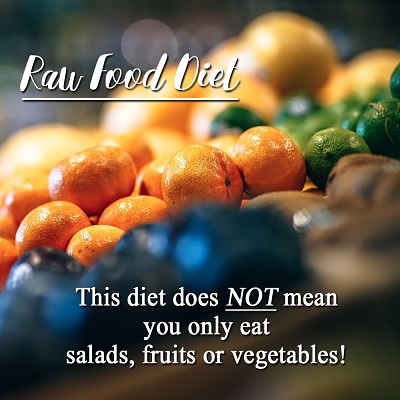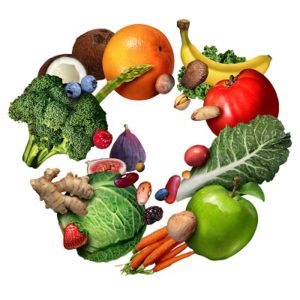Raw Food
 Raw food is defined as foods that have not been refined, canned, pasteurized, treated with pesticides, heated past 48C or processed in any way. This diet can be readily adapted to vegetarianism or even veganism, as it is predominantly a plant-based diet, with fruits, vegetables, seeds and nuts being the primary food groups.
Raw food is defined as foods that have not been refined, canned, pasteurized, treated with pesticides, heated past 48C or processed in any way. This diet can be readily adapted to vegetarianism or even veganism, as it is predominantly a plant-based diet, with fruits, vegetables, seeds and nuts being the primary food groups.
However, in its most liberal form the raw-food diet allows meat consumption, providing it has not been heated above the allowed limit.
As the diet requires all food to be raw and uncooked there are plenty of other ways to prepare the foods such as blending, dehydrating, soaking, juicing and sprouting.
This diet does not mean you need to just eat salads or plain vegetables as you can be as creative as you like with the foods within the raw range. There are plenty of ways to eat raw foods from cakes and slices to fruit salads and fresh vegetable juices so there should be many ways to incorporate raw food into your lifestyle. Continue reading
 There are a number of reasons to go raw, that is, adopt a raw food diet. As the name suggests, with a raw food diet, you do not cook any of your food, but eat all of it raw.
There are a number of reasons to go raw, that is, adopt a raw food diet. As the name suggests, with a raw food diet, you do not cook any of your food, but eat all of it raw.
Greater Nutrition
The reason for a raw diet is the assumption that cooking destroys many of the nutrients from the foods you eat, so a raw diet is supposed to give you more of the vitamins and minerals contained within each food.
Better Digestion
The raw diet is also supposed to aid in digestion, helping the human body by eating foods that are completely unprocessed in any way. Raw foods have more amino acids, enzymes and fiber than cooked foods. Better digestion means better elimination and excretion of bodily wastes, which means detoxing and cleaning out the system and enjoying less constipation and greater regularity. Continue reading






